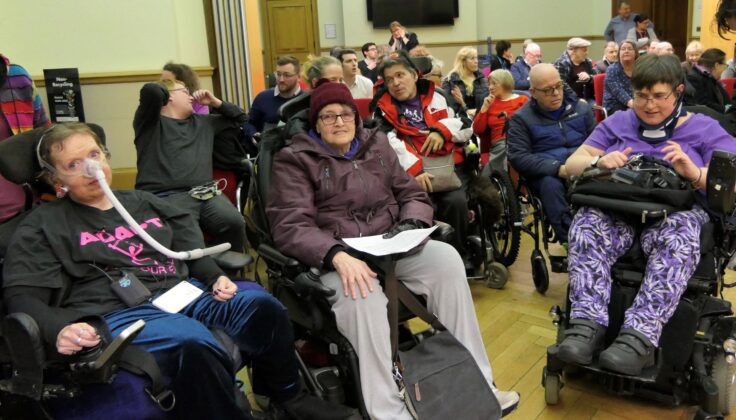Meet your candidates
Meeting with candidates is a good way of understanding their priorities, building relationships and securing commitments

Meeting with candidates is a good way of understanding their priorities and a chance to identify how committed they are to acting on our pledges. There may be lots of candidates standing so you will need to decide on who you are going to meet.
We have put together a list of nine pledges that Disabled people and DDPOs have co-produced for the upcoming local elections here and a list of questions below.
Key Tips
- In line with political impartiality guidance and to make your campaign as effective as possible, we strongly recommend contacting candidates from all the major parties to request a meeting
- Arrange to meet as a group, if you can, to show your collective power
- Prepare an agenda and questions beforehand. We have put together a set of questions below
- Keep the conversation on track. Politicians like to talk a lot and you may need to be bold and use conversation turners like “sorry, but can I just bring you back to the question”
- Stick to your asks
- Take a photo for social media and the press
- Take along a pledge card and ask candidates if they’ll commit to your local campaign ask. A good way to show visual support is by asking them to hold up a printable A4 or A3 pledge poster or board. This will make a great photo opportunity which you can also share on social media.
- Follow up with an email thanking the the candidate for their time, restate what they committed to and attach any further information
Suggested questions to ask parties and candidates
Good questions are key as they will allow you to probe candidates’ positions and even secure pledges that you can use to hold elected councillors to account. Below are a set of questions. Make sure to tailor the questions as much as possible to your local context.
- What will you do to increase the volume of genuinely affordable and accessible social housing in this Borough and will you ensure the Disabled Facilities Grant is increased to reflect rising costs?
- Charging for social care is a tax on Disabled people that is forcing more and more Disabled people to go without essential support. Hammersmith &Fulham Council has scrapped this unfair charge – will you do the same?
- How will you support Disabled residents left with no income as a result of benefit changes, delays, and sanctions?
- What measures will you put in place to ensure that there is enough local advice and information available for benefit claimants impacted by the roll out of Universal credit and that this is accessible to Deaf and Disabled people with a range of communication support needs?
- Cuts to social care funding are undermining Disabled people’s dignity, independence, choice and control. How will you ensure social care support needs of local Disabled people are met?
- What will you do to increase the provision of Changing Places toilets to increase Disabled people’s access to the community?
- How will you tackle hate crime and harassment experienced by Deaf and Disabled people in this borough?
- How will you ensure all mainstream schools within the LA area are fully inclusive and do not discriminate against Disabled pupils and students?
- How will you ensure that local transport planning takes into account the needs and views of local Deaf and Disabled people?
- How will you develop and promote co-production with Deaf and Disabled people and DDPOs?
- How will you work with and support the work of local Deaf and Disabled People’s Organisations (DDPOs)?